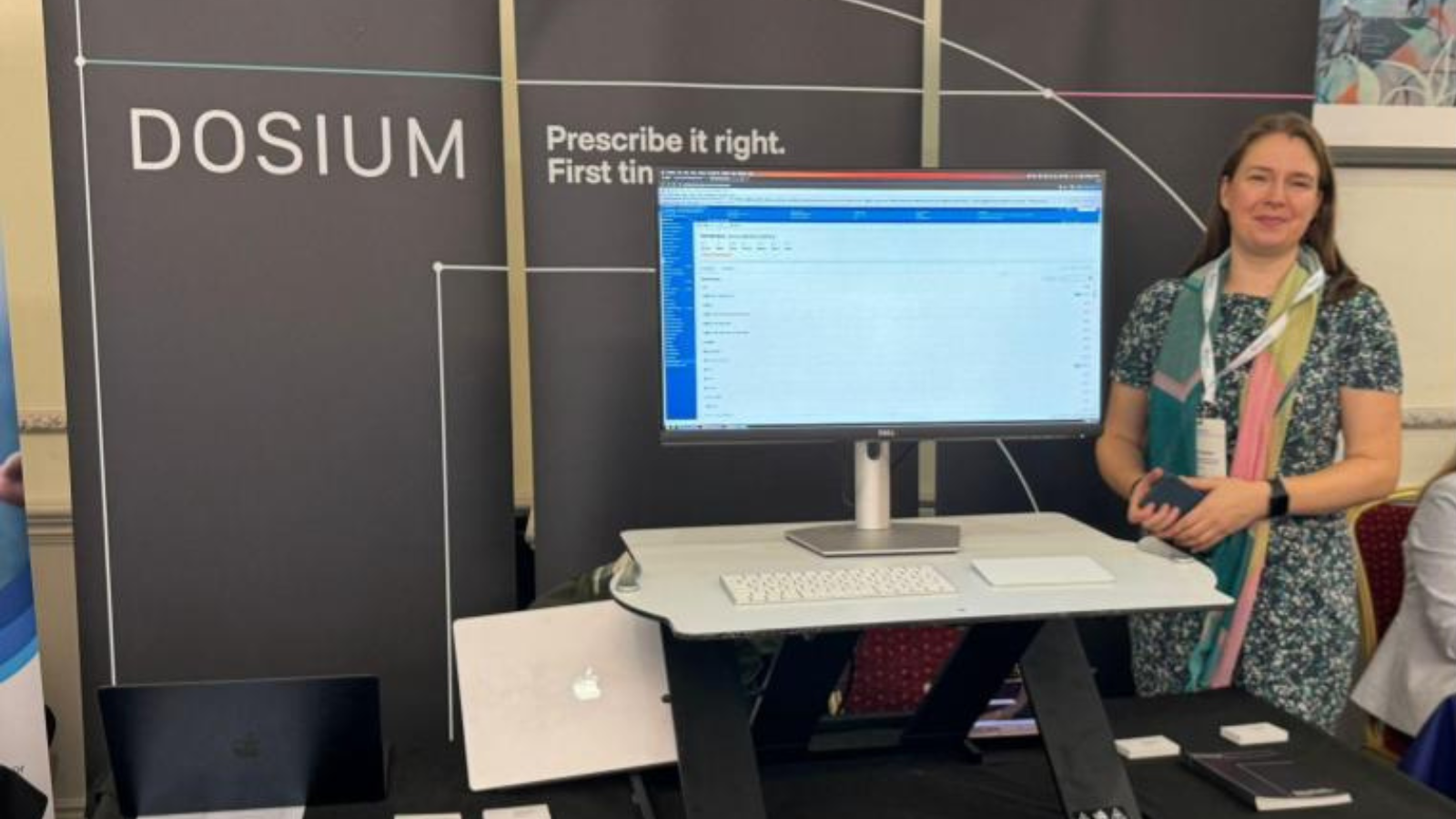
“It was quite scary when I looked back and wondered how many medication errors I hadn’t been aware of,” says Calandra Feather, reflecting on her time as a critical care nurse. “I was thinking about my time working in paeds resus where some children did inevitably have poor outcomes, and I wondered if any of them were a consequence of preventable harm.”
As a nurse in the paediatric high dependency unit at Chelsea and Westminster Hospital, and later in the Paediatric Intensive Care Unit at Imperial College Hospital, Calandra thrived in the high-pressure environment. But when she moved into research, she began to see the often-hidden issue of prescribing errors, and their sometimes devastating consequences.
Working with the research team at Imperial College, Calandra contributed to clinical trials on infections, paediatric ventilation, Covid, swab design, and more. But it was a six-month secondment with the team at Dosium - tasked with researching medication errors and helping inform a new prescribing technology - that changed everything.
The data was sobering. In research led by Dr Nicholas Appelbaum, now CEO and Co-Founder of Dosium, every simulated case of paediatric resuscitation included at least one medication error. Almost 75% were clinically significant.
“It was only when I stepped outside of the ward and started looking in that I started to really understand the scale of the problem,” she explains. “As a nurse, I was always aware of it - but not the extent. It was eye-opening.
“I could really see that not only do a lot of errors happen and go undetected, but even when they are caught, they’re rarely reported. That means the root causes aren’t properly addressed - and nothing changes.”
Many of these errors, Calandra notes, are completely preventable. But the healthcare system doesn’t always treat them that way.
“The mental maths, the quick judgments, the design of the tools - it all adds up. And when things go wrong, the people involved are often left feeling the emotional impact - and no one looks too closely at the systems that set them up to fail.”
Determined to keep tackling the issue, Calandra began a PhD focused on safer prescribing.
“Research is hard work and I had to make sure I was measuring and recording the right things to support the case for meaningful change,” she says. “I’ve really enjoyed using robust research methods to support what's quite an agile product development cycle, and bringing the research and industry sides together.”
Her research has shown that using Dosium’s Touchdose technology is associated with an 84% reduction in prescribing errors compared with standard clinical practice.
“There are too many points in a patient’s journey where they’re reliant on staff members to catch mistakes.”
“We can take away some of that burden - and we should. Decimal point errors are a good example of a simple mistake with life-altering consequences. These still happen - as we see all too often in the press - because the system relies too much on human input, which is naturally prone to error.”
Today, Calandra is focused on implementing Touchdose into NHS hospitals - working at the intersection of clinical care, technology, and patient safety.
Her role spans supporting clinical teams, encouraging adoption, gathering feedback, and contributing to commercial strategy. But her motivation is simple.
“Helping clinicians get things right the first time,” she says. “I’ve been there.
“Every single staff member is trying their best - but the technology they’re working with is antiquated. At a minimum, they need the right tools to do their jobs - and we can provide that.”
The focus now is on driving evidence generation and supporting the case for adoption of the Touchdose system - which we believe can pave a much safer way forward.
“There’s lots to do - getting trusts on board, pushing for policy change, and bringing prescribing safety onto the national agenda - and I know we can make things genuinely better.”
